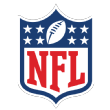Why 2020 NFL free agency could be wild, and all the big names set to hit the market

Back in June, when I put together this list of 50 NFL players who could get contract extensions during the offseason, I obviously didn't expect all 50 of them to get extended.
It looks as if 14 of them did, which leaves 36 who didn't, including one, defensive tackleMike Daniels, who got cut. (Oops.) Of those 36, 34 are in contract years (the exceptions being Daniels and Trent Williams, who's holding out), which means we're now working with a list of guys who can be free agents in March. And it's a list with some pretty big names on it, including:
- QB: Dak Prescott, Drew Brees, Philip Rivers, Jameis Winston
- RB: Melvin Gordon, Derrick Henry
- WR: Amari Cooper, A.J. Green, Emmanuel Sanders
- OL: Brandon Scherff, Anthony Castonzo, Andrus Peat
- EDGE: Jadeveon Clowney, Yannick Ngakoue, Matt Judon
- DL: Chris Jones, Jarran Reed, Leonard Williams
- CB: Marcus Peters, Byron Jones, William Jackson
Add in hot starters like Chargers running backAustin Ekeler and Bucs pass-rusherShaquil Barrett, who could be playing themselves into big paydays if they keep up their performances, and you have a robust-looking March 2020 free-agent market. So let's take a look at a couple of the factors that could shape it -- and the months leading up to it:
Prescott isn't really going to be a free agent. One of the surprises of this season is that the quarterback hasn't agreed to a deal with the Cowboys and is instead playing on a $2.025 million salary. For perspective, Prescott's opponent this week is Green Bay's Aaron Rodgers, who's making $15 million this year and whose current contract averages $33.5 million per year. Prescott is taking a big risk if he intends to play out the season without an extension, but he and agent Todd France have been disciplined and steadfast in pursuing their goal, the Cowboys have yet to offer what he's seeking, and Prescott doesn't seem to fear an injury that could jeopardize his ultra-lucrative future.
The hammer the Cowboys have is, of course, the franchise tag, which would allow them to keep Prescott for 2020 at something like $27 million -- still short of his desired number. But if they franchise-tag Prescott and he still doesn't have an extension in place by this time next year, he could be headed down a Kirk Cousins-type path that prices him out of Dallas in the 2022 offseason. (Especially since no one knows yet what the franchise tag rules would be under a new collective bargaining agreementbeginning in 2021.)
I asked Cousins this summer why he thought more quarterbacks hadn't tried to get fully guaranteed deals as he did in the 2018 offseason, and he said he thought it was because none of them had reached the point where the franchise tag wasn't a factor.
"Aaron, Matt [Ryan], Russell [Wilson], all these guys, they were all negotiating knowing that, 'If I don't take the deal that's being offered to me, the alternative is to get franchise-tagged twice,'" Cousins said. "And until somebody's willing to do that, or to at least say, 'If that's the way we have to go, I'll go that way,' it's going to be hard to get a fully guaranteed deal. Until you can get the franchise tag out of the way, that kind of frames every negotiation, really."
If Prescott was willing to play out this year for $2 million, you have to believe a fully guaranteed $27 million franchise tag in 2020 would only strengthen his resolve. This is worth watching.
The rules governing free agency could be different. We've written about this before, too, but if there's no new collective bargaining agreement in place by next March, 2020 becomes the "Final League Year." That sounds very ominous but is actually a very real CBA term that carries with it some rule changes.
For example, in the Final League Year, a team is allowed to use the franchise tag on one player and the transition tag on another. (In other years, you can use only one or the other.) So in the case of the Cowboys, for example, they could franchise-tag Prescott and use the transition tag on Cooper if they wanted to try to keep them both but couldn't extend either. The Buccaneers could franchise Winston and transition Barrett, as another example. The transition tag isn't as restrictive as the franchise tag, but it is another way for teams to put a drag on a player's ability to find his true free-market value, and it could play into the 2020 free-agent market.
But it's not all great news for the teams. Another Final League Year rule is that teams won't be allowed to designate players as post-June 1 cuts as a means of preserving salary-cap space in the short term. Currently, teams are allowed to designate up to two released veterans per year as post-June 1 cuts, which allows them to spread out the remaining "dead money" on a player's contract over two years. They won't be allowed to do that in 2020, for the simple reason that the CBA runs only through the 2020 season and, technically, there is no season scheduled for 2021. Can't float money into a year that might never happen. So a cap-cost-saving measure teams have been using for years might not be available to them in March, which could affect some teams' ability to sign free agents.
A new CBA could bring long-term financial clarity. On the flip side, if the players and owners do agree to a new CBA before the end of this season, the effect on next year's free-agent market could be significant. Factor in the possibility of new TV contracts with the league's network partners and the long-range financial picture for the league could include long-term revenue projections that allow teams (and players, by the way) to project salary-cap increases into the next half-decade or so.
That could affect the way teams structure free-agent deals or even, in some cases, their willingness or ability to make offers. Should there be an agreement on a new CBA by, say, the end of November, some in the industry wonder if some of these extensions that didn't get done this summer could get done before season's end.
The trade deadline continues to be a bigger and bigger thing.It used to be the NFL trade deadline would pass every year with a whimper and a yawn. But with teams more and more willing to trade players for picks and vice versa, this month could end up having an impact on next year's free-agent market.
If receiverA.J. Green comes back from injury, for example, and the Bengals haven't found their way back into contention, would they be more likely to trade him or extend him? CornerbackJalen Ramsey is the big name seeking a trade out of Jacksonville, but he's signed through 2020 already. Ngakoue is the pending free agent looking for a new deal, and he could conceivably be on the move at the deadline if the next three weeks don't go well for the Jags.
Three other things I found noteworthy this week in the NFL:
An update on CBA negotiations
While I'm told there's a slight chance there could be talks sooner, the more likely scenario is that CBA discussions pick up again either late next week or early the week after. NFLPA executive director DeMaurice Smith and union leadership are scheduled to wrap up their annual visits to teams next Thursday, and once they're off the road, they'll be in position to negotiate in earnest.
Not to oversimplify, but the major areas of discussion continue to be the owners' desire for an expanded season and the players' desire to secure a higher share of league revenue. It's not as basic as "OK, we'll agree to a 17-game season if you give us 50% of the revenue," but discussions are expected to proceed somewhat along those lines.
What no one on either side still seems to know is how a 17-game season would work. Does every team get two bye weeks? Does every team get a guaranteed bye going into its Thursday night game? Does the Super Bowl slide back to Presidents Day weekend?
The specifics on what an expanded season would look like haven't been discussed in negotiating sessions between players and owners, in large part because the players haven't decided whether (or for what price) they'd be willing to agree to expanding the season. Should an agreement on that issue come together quickly, I'm told the rest of the deal would come together quickly around it. But it's hard to handicap how soon the two sides can agree on the major sticking points. Hopefully we will know more in a week or two.
It doesn't pay to be a star rookie quarterback
With Gardner Minshewmania in full effect in Jacksonville, the economics of the Jaguars' QB situation becomes a story. The team guaranteed Nick Foles $45.125 million over the first two seasons of the free-agent deal he signed this offseason, so if you were betting on this, it'd be smart to put money down on Foles getting the job back once he's healthy -- no matter how Minshew plays between now and then. Even trading Foles in the offseason -- if, hypothetically, they determined Minshew was the better option -- would cost the Jags more than $18 million against next year's cap, and they're already projected to be in cap trouble. Foles is the guy there.
But the flip side of the contract issue is interesting as it pertains to Minshew and other quarterbacks who perform well on their rookie deals. CBA rules prohibit a team from extending a rookie contract until after its third year. So no matter how well Minshew plays, he'll earn $495,000 this year (plus his $191,000 signing bonus), $585,000 next year and $675,000 in 2021. If he plays enough to earn the proven performance escalator (35% of the team's offensive snaps in either of his first two years, or 35% of the team's total offensive snaps over his first three years), his 2022 salary would be adjusted upward by around $2 million. But there's no negotiating an extension until after 2021.
This is the reason Prescott wasn't allowed to negotiate a new deal with the Cowboys until this past offseason, why 2018 league MVP Patrick Mahomes can't negotiate a new deal with the Chiefs until after this season and why the Steelers can't give Mason Rudolph a raise even though he's going to be their starter for the rest of the season. A 2018 draft pick, Rudolph isn't eligible to redo his contract until after the 2020 season. He's making $658,000 this year and $837,000 next year no matter how he plays or how many games the Steelers win. No Jacoby Brissett-style raise for Mason just because Ben Roethlisberger was injured.
This might be something to adjust about rookie contracts in the next CBA -- some NBA-style mechanism for beefing up these guys' salaries if they end up outperforming their rookie deals. For now, though, they're just out of luck.
A Real McCoy in Washington?
Based on the conversations I've had about the Washington quarterback situation, I would bet on veteranColt McCoy starting Sunday's game against the Patriotsand give you the field.
Assuming McCoy gets through practice this week healthy -- and there are some there who say he was healthy last week and the team was just being careful -- I believe he would be Jay Gruden's choice to start the game, with rookie Dwayne Haskins in the backup role and Case Keenum possibly even inactive.(Update: McCoy was named the starter Friday afternoon.)
Gruden keeps saying he hasn't decided yet, but the sense I get from people close to the situation is that McCoy is his top choice if healthy. If McCoy had been healthy in the offseason, it's possible Keenum wouldn't even be on the team. Keenum is sneaky potential trade bait if McCoy is fine and the team thinks Haskins is a viable backup. All of this could change, of course, if Gruden gets fired, and his seat is as hot as that of any coach in the league.









